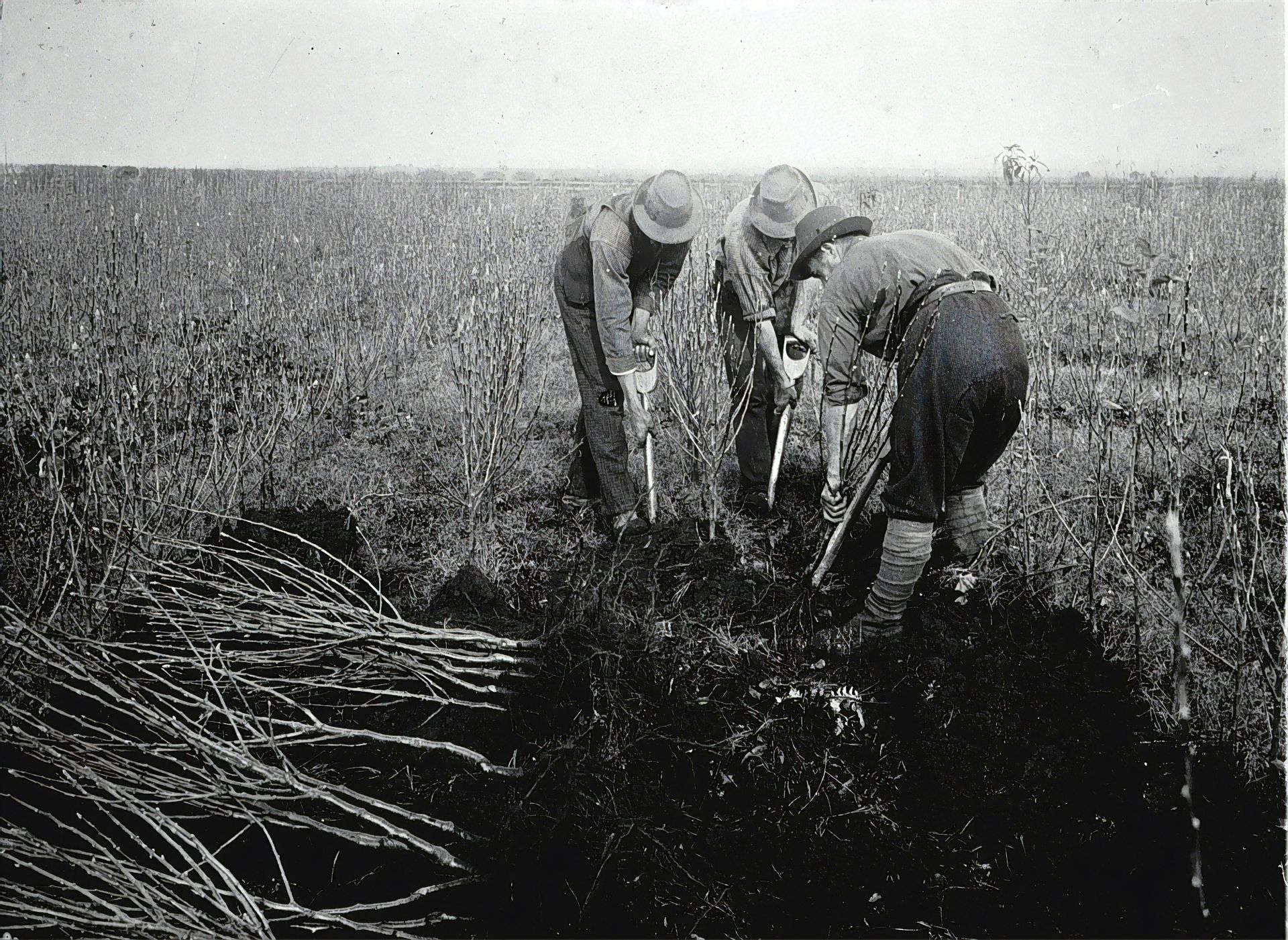An Ideal Team? A Sermon on Nehemiah 3
Teamwork makes the dreamwork. Right...? A sermon on Nehemiah 3 on just that topic, given at Wycliffe Hall Chapel on October 28th, 2025.
What does Nehemiah 3 (which is a glorified list of names of people who built the wall around Jerusalem) have to say about it from God's perspective? What team is God interested in building? What teams do we choose to be part of?
To read Nehemiah 3, click here. The gospel reading I chose to go with the sermon was Matthew 25:14-30.
******
TEAM: Together everyone achieves more.
There's no I in team.
Teamwork makes the dream work.
There are many cheesy perhaps slightly cliched slogan about what might help motivate people to work together. But there's no denying that it's actually a pretty wonderful thing to be part of a team that works well together.
I spent some of my twenties as a secondary school teacher in Bradford and was part of a great team in my department: Richard, Rachel, Laura, Stuart, and Jane. We were committed to the vision: united in wanting to establish safe classrooms where our students could come in, where they would learn, where they would grow, and where they would succeed to the best of their ability.
Along with that, we were also committed to helping those who, in the study of religious education, started to have deeper questions about faith, Jesus and prayer. We worked with a local parish church, provided extracurricular activities and other things for those students that wanted to pursue a personal relationship with God.
We were also really committed to each other. Sometimes on the bad days (and there were quite a few of those if I'm honest) it was covering somebody else's classroom while they went to collect a student for detention at the end of the school day, knowing that if we didn't, the student would just head on home. But on other days, on the more positive ones, it was about sharing teaching resources and lesson plans and ideas so that we could all be teaching to the best of our ability.
As a teacher, I was pretty green so I spent a lot of my time writing lesson plans and figuring out how to teach what was on the curriculum. What I was able to contribute was not quite as much as my head of department and colleagues: but we all put in what we could and we worked together.
It really was a very challenging time, but a really special time and perhaps some of the best and most profound ministry I'm going to have in the whole of my life. (I peaked early, I guess!)
Nehemiah 3: A Strange Text!
Nehemiah 3 is a strange text to be preaching from. It is a long list of names of those who were involved in building the walls around Jerusalem.
But it's also a little bit strange where we find it in the book of Nehemiah. In the early chapters we have Nehemiah telling a first person account of how he learned that the walls had not been rebuilt, getting permission from the king to return, surveying the walls, being mocked by others, and beginning to figure out how this might be accomplished.
Then, in chapter 3, we suddenly turn from first person to third person. At some point, an editor saw fit to bring this into the front end of the book. Not only that, it's a little bit strange because it reports the wall is fully built. And yet in the next chapter, we're going to go back in time and the full building of the walls won't finish till a few chapters down the line.
So we might ask, why is it here? What can we learn from it?
I'm going to suggest this evening that we take a sort of a dual angled approach into Nehemiah 3, exploring the picture of teamwork it contains.
A Complete Picture of God’s People at Work
The first perspective, the first angle is one that reveals a pretty remarkable accomplishment for the people of God working together.
It's quite notable that here this chapter lays out step by step from north, west, south, east, and back to the north again. The whole Jerusalem wall being built—a completed picture from the Sheep Gate all the way around back to the Sheep Gate again.
But not only that, it's really interesting to take a closer look at the different names and people that we have mentioned. There's a range of professions involved. We have Eliashib, the high priest. We have rulers from Jerusalem and around and about. We have Shallum and his daughters. We have Malchijah who's a goldsmith. We have Hananiah in verse 8, a perfumier.
We have people from all kinds of different places? They come from Jericho. They come from Gibeon and Mizpah. They come from Tekoa. And some of them like Zadok in verse 29 just goes out of his house, crosses the street and repairs the part of the wall right across from him.
People from all over.
And we have people building very different sections of the wall. So Zadok, not only does he just cross the street, he only repairs that one section. In contrast the Tekoites repair two in verse 5 and 27. Binnui repairs two also in verse 18 and 24. Some had more, some had less, but everybody did something.
From this perspective, we see what we might consider an ideal picture of teamwork and what God's people can do when they work together to achieve God's purposes.
Encouragement in Working Together
This might encourage us—it probably should encourage us, right? It might make us think about other passages in scripture that speak to some of the same ideas.
We might go to 1 Corinthians 12 and Paul's message about all the members of the body of Christ having a part to play. We might go to Galatians 3:28 and think about how everybody is brought in and of equal standing. We might go to Jesus's parable in Mark 12 of the widow's mite who gave less, in our eyes, than everybody else, but in God's eyes? A lot more.
There's a real encouragement here that there is space for all of God's people in the completion of God's work.
And maybe that's relevant for some of us who are new to studying theology. We're three or four weeks in now. We might be starting to think, “What have I got myself into?” And we might be looking around at others thinking, “Well, they're more capable. They seem to know all the answers. They seem to have read all the books.” You might be wondering, “Why on earth am I here?”
But Nehemiah 3 reminds us that there is space for all of God's people in the accomplishment of God's work
A Less Cheerful Perspective
The second perspective that we might take to Nehemiah chapter 3 is a little bit less positive. It's a little bit “glass half empty.”
Now, the first indication of this you may not have noticed, and that is the mention of the high priest, Eliashib, right at the start of the chapter. Here, he is part of a team doing what everybody else is doing. Everything goes very smoothly.
But if you fast forward ten chapters and you go to Nehemiah 13, where he's mentioned again, we find a very different type of high priest. Here, he has taken sort of the equivalent of the sacristy storeroom, where offerings and grain and the temple vessels were kept, and he has emptied it out, refurnished it, and given it to his brother-in-law or uncle—some relative—Tobiah.
In the course of doing this, he has ceased paying the Levites their share for their work in the temple such that they have gone back to their fields. Nehemiah, needless to say, is pretty angry. It's a Jesus in the temple turning tables kind of moment. He throws the furniture out of Tobiah's room. He sees that the Levites have gone and complains, “Why is the house of God forsaken?”
But in chapter three, Eliashib is just here—part of God's people doing part of God's work. And it's a helpful reminder perhaps for us to not get too taken away with the ideal, too swept up in how well things are going, knowing that sometimes when you scratch beneath the surface, things start to get a little bit more complicated.
The Noblemen Who Would Not Work
Then we have the noblemen of Tekoa in verse 5 who would not participate, would not put their shoulders to the work of the Lord.
Why? Why wouldn't they pitch in?
We could speculate here. Perhaps their wealth had got to them and they'd started believing in their own status for their own identity. But there were other rulers and dignitaries who showed up and pitched in. Perhaps they thought Tekoa was a little bit too far from Jerusalem. And yet we know that plenty of others didn't have a problem with the distance.
Some scholars suggest maybe it's the proximity of Tekoa to Geshem, one of the men who was mocking Nehemiah and those planning to build the wall. But the rest of the people of Tekoa didn’t have a problem—they came in and repaired two sections.
Maybe the noblemen were just cynical that the wall could ever be rebuilt. We're talking over a century since the walls had existed. Perhaps they just did not believe that the disgrace of Jerusalem could ever be dealt with.
We don't know. All we do know is that they refused.
This is the only mention we have of them in scripture. The only point at which they are remembered is as a result of their refusal to join in.
And the language here I think is quite helpful: “They didn’t put their shoulders to the work of the Lord.” This speaks to the idea of being yoked, being humbled, being willing to carry a burden. We might think of the opposite as stiff-necked. These are people who are not willing to humble themselves and do the work that needs doing.
A Personal Parallel
A few years after I was first ordained, I was invited onto a regional church committee to address and look at some dynamics within church life.
I really did not want to do it, for various reasons. Partly I wasn't actually convinced that the vision was worth anything. I didn't think it was going to do what it was set out to do. I was a little bit sceptical, perhaps somewhat judgmental of the other people involved and why they were doing it. Perhaps I was also a little bit fearful of having my own preconceptions and perspectives challenged.
I didn't say no… but I managed to convince the person who asked me that I was ineligible. So I was disinvited.
Looking back, I can see that I was not willing to put my neck to the work. I was not willing to carry that burden. I was not willing to humble myself. And I share this not just as an example of the noblemen of Tekoa, but because it's really easy to look at pictures like this and see others in the noblemen rather than ourselves. Because the truth is, we can all have stiff necks and refuse to do what is being asked of us.
We can also be like the high priest Eliashib—wonderful on our good days and less so on others.
Two Pictures, One Truth
Side by side, we have two perspectives on Nehemiah 3 that might cause us to reflect as we bring those two together.
We have this beautiful scene of God's people doing God's work. And then we have a couple of individuals—a handful of noblemen—people with mixed motives or those who simply outright refuse.
With God, there is space for everyone. The only ones who are not doing the work are those who exclude themselves—the ones who don't have the faith, who won't commit, who won't pitch in.
With God, there is work for everyone. Everyone has a part to play, however big or however small.
For Those Who Feel Small
Like I said earlier, some of us may be sat here today finding this transition into theological college life a little bit challenging—maybe a little stretching.
If we've been called to ordination, we might be thinking, God, why me? I mean, I've answered all the questions, written all the paperwork, but seriously.
Well, if we are finding it hard, if we are wondering whether we belong, maybe we need to remember passages like this one. Maybe we need to remember the breadth of God's people praising his name in Revelation, the body of Christ in 1 Corinthians, and the people of God working together here in Nehemiah 3.
There's also some really useful wisdom in the saying, Don’t compare your insides to other people’s outsides. There is space for you.
And as I think Stanislavsky said of acting, “There are no small parts, only small actors.”
For Small Actors
But maybe some of us here today are small actors.
Maybe we have accumulated just enough knowledge to start believing our own hype. Maybe we have got some pretty extensive ministry experience that makes us look around and kind of see what everybody else is just doing wrong. Maybe we're feeling trapped and wrapped up in our own fears and failure and shame, not knowing quite how to do things any other way.
Maybe we are facing our own unwillingness to go where God wants us to go and do what God wants us to do.
But if the Cross teaches us anything, it is that there is space for small actors as well. The cross is a place where we can receive the grace we need to lay down our old ways and to take up new ones.
Our Lord is the one who can humble, who can soften hearts and bend necks, that we might take up his yoke which is gentle but life-giving.
Will You Pitch In?
So, wherever you are today and in this reflection on Nehemiah 3—wherever it hits home, whoever you are, wherever you’re from, whatever you can offer, whatever your objections and tantrums of today—there is space for you.
So, will you pitch in?
******
Photo by Nakaharu Line on Unsplash



